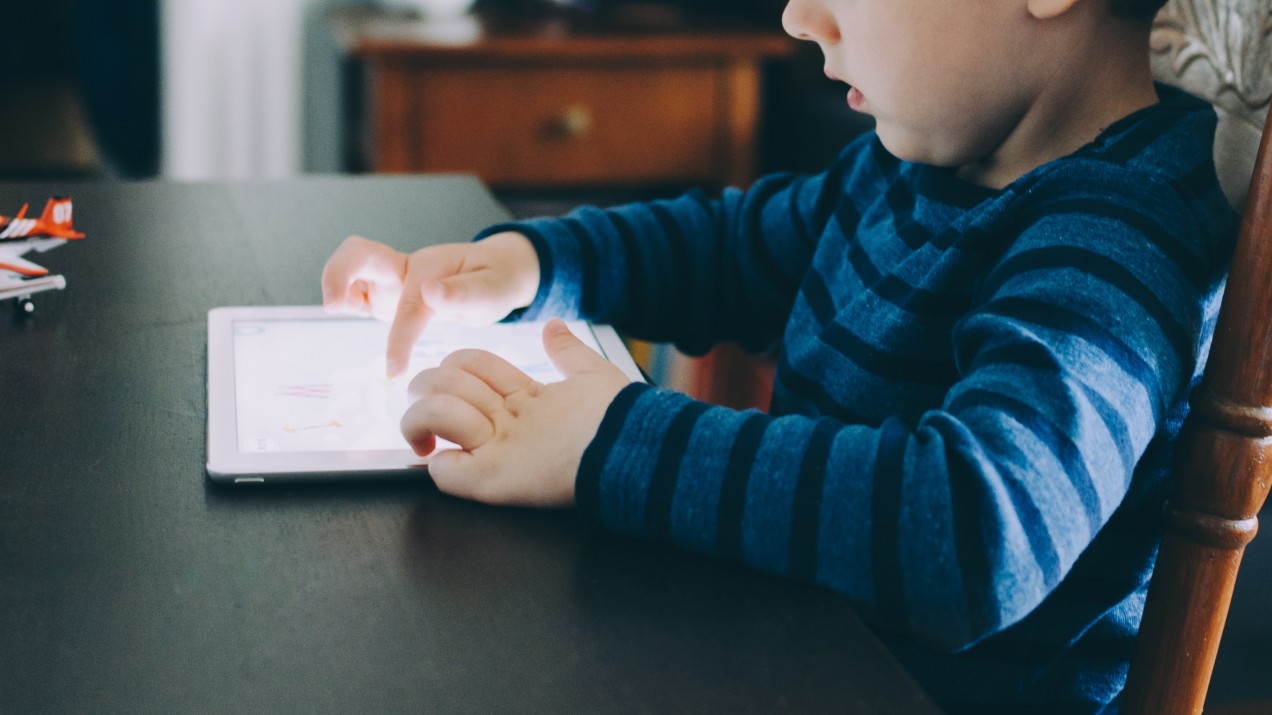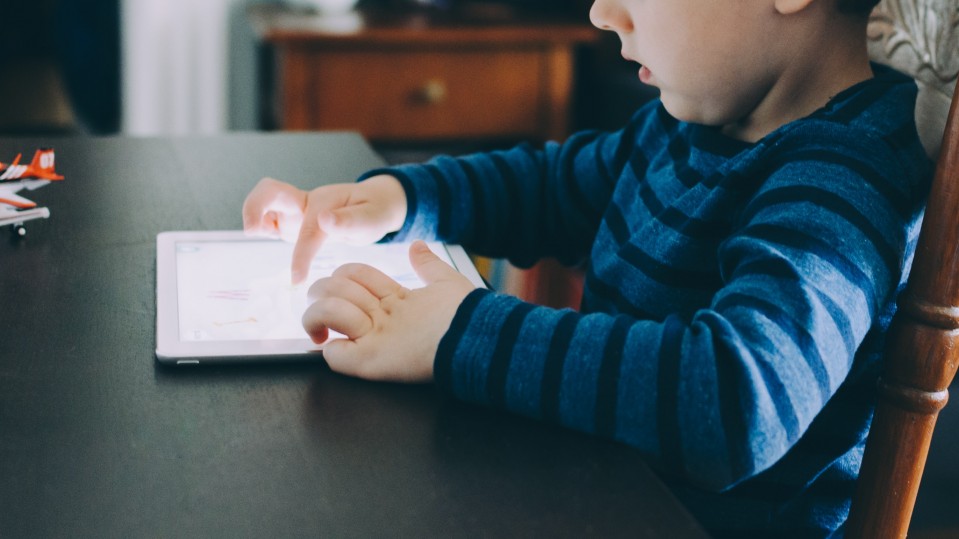

Humans and Technology
Screen time is good for you—maybe
Contrary to what you’ve heard, a study from the Oxford Internet Institute says screen time is actually good for kids.

Here’s what the American Academy of Pediatrics says about screen time for kids:
- children between 2 and 5 should be limited to “one hour a day of high-quality programming”
- infants between 18 and 24 months can have screen time so long as it’s high quality and with a caregiver
- babies shouldn’t be exposed to screens other than video chat
Andrew Przybylski of the Oxford Internet Institute thinks that’s way off base. In a controversial new study published in the Journal of the American Academy of Child and Adolescent Psychiatry, he and colleagues don’t just swipe at the predominant thinking that kids should be exposed to as little screen time as possible—they argue that moderate screen time is actually good for kids.
The study set out to test two ideas. “The first was to test if there were ‘optimal’ levels of screen time in young people,” Przybylski said via email. “The second was to look for a critical value, or tipping point, at which screen engagement was significantly related to well-being outcomes.”
Przybylski, along with his colleagues, found “modest positive relations” when kids used devices and/or watched television for up to two hours a day. Contrary to medical recommendations, the team reported that kids would need to be using screens “for more than five hours a day” before parents would notice any differences.
The study’s findings are based on data from more than 35,000 American children and caregivers and reported by the National Survey of Children’s Health via the US Census Bureau between June 2016 and February 2017. Przybylski says his analysis suggests that children who are using a digital device—a television, video game console, tablet, laptop, smartphone, or any other gadget with a screen—have better social and emotional skills than kids who don’t use this technology.
The research overturns dominant thinking about screen time, which has overwhelmingly pointed to worrisome increases in rates of depression, anxiety, and suicidal tendencies.
Jean Twenge is one of the most prominent critics of letting children have screen time and the author of the book iGen, which argues that technology is making kids less happy. She said in an email she found the study “very strange,” particularly because she and her colleagues used the same census data as Przybylski in a paper last year and found the opposite results: heavy screen use led to almost three times the rate of psychosocial issues in kids. Przybylski’s interpretation of the same data was that the differences between heavy and light use were small, a discrepancy Twenge said was puzzling.
Przybylski stood firmly by his team’s results despite the criticism, even going so far as to suggest that previous research in the area has been statistically suspect. “Nearly all the studies on this topic are very poorly done; most don’t share their data, code, or conform to best research practices,” he said. “More than results, what sets our research … apart is an emphasis on empirical rigor.”
Twenge conceded that her statistical methods were up for debate, but she stood by her overall conclusion that screen time was unhealthy for children. The data “do not show benefits for moderate use,” she said. “Instead, the best outcomes appear at light use for teens. For younger children, the best outcomes are at no use or very light use.”
Coming to a consensus view is going to be difficult. That’s at least in part because childhood development is complex and influenced by all sorts of interwoven factors. It would be very difficult to control for all those variables in studying the effects of time spent in front of screens—which can host all manner of content. It’s perhaps no surprise, then, that research on the topic has proved mostly inconclusive, with each new study adding its own confusing twist.
Przybylski admitted there are some drawbacks to his team’s study: demographic effects, like socioeconomics, are tied to psychological well-being, and he said his team is working to differentiate those effects—along with the self-selection bias introduced when kids and their caregivers report their own screen use. He also said he was working to figure out whether a certain type of screen use was more beneficial than others.
Nevertheless, Przybylski stands by his findings, calling screen time mandates from health boards “unhelpful, unsupported by evidence, and ... abandoned repeatedly over time.” He adds, “It confuses parents, misleads policymakers, and distracts us from holding technology companies to account. Until we clear this up … we aren’t going to get the answers we need about the roles that technology plays in the lives of young people.”